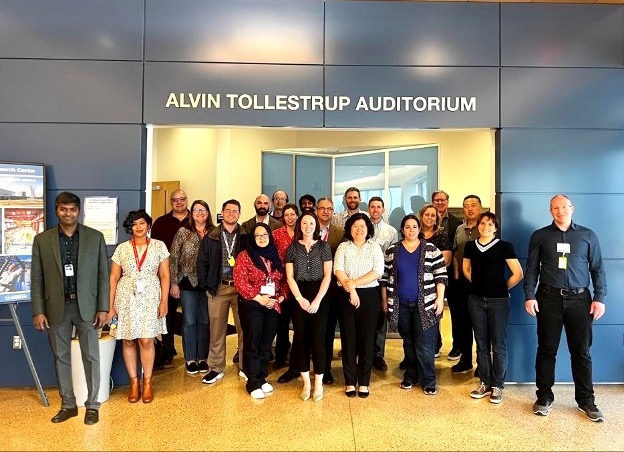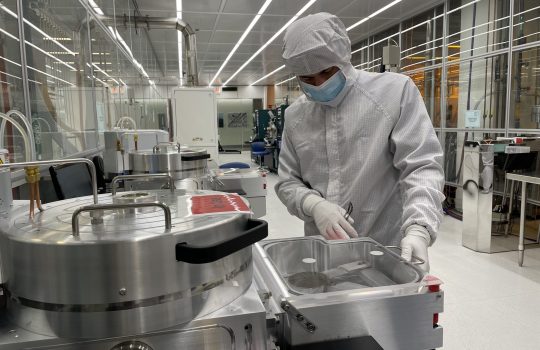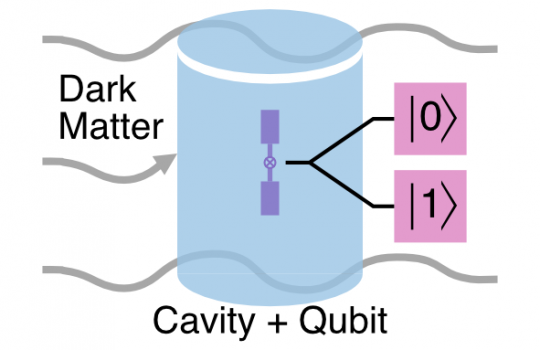An entrepreneurial way of thinking goes beyond commercialization. It is a mindset that helps drive new processes, build more effective teams and enable partnerships. Twenty-one staff members from the U.S. Department of Energy’s Fermi National Accelerator, Argonne National, Princeton Plasma Physics and Ames National Laboratories recently took part in the second cohort of the Strategic Programs for Innovation at the National Labs, or SPIN Program, developed by the University of Chicago’s Polsky Center of Entrepreneurship and Innovation. Over 12 weeks, the cohort members with a variety of roles learned to think like entrepreneurs with the goal of increasing innovation at their labs.
Charles Thangaraj, Fermilab’s senior technology development and commercialization manager, noted that skills like negotiation, communication, cost-benefit analysis and team building all are available to anyone, regardless of their work. “The core idea behind SPIN is to take some of the very best tools developed for business and organizational success and try to apply them in a national lab setting. I think it has proven effective,” he said.

SPIN Cohort 2 participants at the Alvin Tollestrup Auditorium at Fermilab. Photo: Mauricio Suarez, Fermilab
Based on the success of the inaugural program with Fermilab and Argonne, the Cohort 2 program expanded this year to include Princeton Plasma Physics and Ames Laboratories. The organizers hope to expand it even further for Cohort 3. Participation in the program is merit-based; members are selected through recommendations and an application process.
The selected cohort members came from a variety of work backgrounds, including science, operations, media relations and economics. “We were a wide variety of participants,” said Associate Scientist Sudeshna Ganguly, one of the seven Fermilab cohort members. “That was my favorite part, actually. All of us were showing leadership in different ways. As a team, we exhibited a cohesive sense of responsibility and acted when necessary. Somehow, we managed to do that as individuals and enjoyed the process very much.”
Through a series of lectures and team-building exercises designed to increase communication and collaboration strategies, the program introduced cohort members to concepts that they applied throughout and ultimately, brought back to their labs. The cohort met at the University of Chicago, Fermilab and Argonne.
The main thrusts of the program were the innovation lab projects. Initially, each cohort member was asked to identify three ideas to increase innovation at their labs. The individuals were then randomly placed into small groups, which worked together over next four weeks to pare these ideas down to two, discussing, negotiating and merging them along the way.
Learning to conduct customer discovery to get feedback on what people thought were stumbling blocks toward achieving innovation at their labs was a crucial part of this process. To this end, the groups interviewed many stakeholders across the four labs, from scientists to operations to leadership, established employees and those in their early careers, collecting data that helped inform their ideas within their groups and finding themes and commonalities.
“The findings from our customers were very eye-opening for me,” said Akshay Murthy, another cohort member and an associate scientist who recently took on a management role. “It really came down to the fact that many people across the national lab complex feel that innovation at the labs is difficult due to a variety of barriers. We used these interviews as an opportunity to learn more about these barriers and identify solutions.”
By end of the second month, the small groups merged into two. Each group of 10 to 12 cohort members then had to settle on just one idea, which they described in a 15-minute presentation to leadership from the participating national labs and the SPIN coaches from University of Chicago. A Q&A session at Demo Day on the final day of the cohort followed.
After participating in SPIN Cohort 2, Murthy said, “I have a better perspective on the operations of national labs, as well as how to be a successful high-level leader — skills that are important to build. That is one of reasons I signed up.”
Both innovation lab projects produced tangible ideas to be brought back to the laboratories for discussion. Ganguly’s team has already written and submitted a funding proposal to the University of Chicago’s Joint Task Force Initiative to implement theirs. And all cohort members are excited to help to establish this entrepreneurial and innovation-focused mindset as part of their labs’ culture.
“It is a pleasure to see this program grow from two labs in the first cohort, then four. Hopefully, more labs join next year,” said Mauricio Suarez, Fermilab’s deputy head of industry engagement and the Fermilab point of contact for this program. “It is important to grow the network between the labs’ personnel. It is also satisfying to see how the participants improve in their presentation skills, problem formulation, customer discovery, etc. Demo Day made it clear why we want to make this opportunity available to Fermilab staff.”
Those who would like to learn more about the application process for SPIN Cohort 3, scheduled to take place in early spring 2024, should connect with Mauricio Suarez at suarez@fnal.gov.
Fermi National Accelerator Laboratory is supported by the Office of Science of the U.S. Department of Energy. The Office of Science is the single largest supporter of basic research in the physical sciences in the United States and is working to address some of the most pressing challenges of our time. For more information, please visit science.energy.gov.



